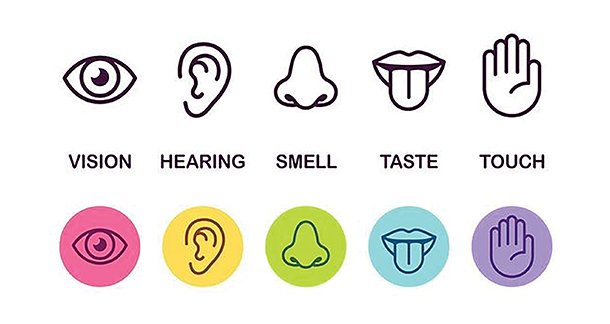In the world of product development, striking the perfect balance between health and taste has become more like walking a tightrope. Consumers, especially the new generation of consumers, Gen Z are now demanding more from their food — less sugar, less fat, and less salt without sacrificing the flavors they know and love. This poses a new challenge for manufacturers, one that is like trying to make a cake without flour, it’s possible, but it requires skill, innovation, and a deep understanding of what makes a product satisfying even when it’s created just a little differently.
The Challenge of Making Healthy Taste Great
Nowadays, we’re seeing consumers who are more health-conscious than ever before. With concerns about conditions like obesity, diabetes, and other health issues skyrocketing, the demand for healthier food options has become a hot topic. In light of these concerns, government and health organizations are stepping in with stricter regulations to help cut down sugar, salt, and fat in the food products being brought into the market. While these challenges are important for public health, they present a unique obstacle for food developers.
When you think about it, sugar, salt, and fat are the stars of consumers’ favorite food and beverage products — they do more than just add flavor, they affect texture and mouthfeel too. It is believed that reducing or removing these ingredients all together can leave products tasting flat. That’s where sensory research and drivers of appeal studies come into play, helping developers find the perfect balance.

What is Sensory Research & Why it Matters
Sensory research is all about understanding how consumers experience food through their senses — smell, taste, sight, hearing, and touch. It provides important insights into what makes a product truly stand out and how to tweak it to make it even more appealing.
What is a Sensory Panel?
A sensory panel is a group of 10-12 people with high sensory acuity. Trained expert panels are a big part of this process. These are groups of individuals with specialized sensory training who evaluate food products with precision. Unlike typical consumer panels, which might be influenced by personal preferences, trained panels provide detailed and objective feedback on how different ingredients and formulations affect the sensory experience of a product.
At MMR, there are a total 34 sensory panels across the world including in India.

MMR Sensory Science Center,Asia
The Role of Sensory in Product development, R&D and Quality Control –
Sensory research plays a significant role in various aspects of product development and quality control by helping in key areas such as concept validation, formulation optimization and maintaining consistency in quality assurance. Sensory research also helps in meeting compliance standards, by making sure that a product meets regulatory standards and helps align label claims & quality control.
At its core, sensory research and evaluation plays an important role in all the stages mentioned above by ensuring products are created with actionable insights that allow manufacturers to constantly refine products based on consumer preferences and demands.
Unlocking the Drivers of Consumer Preference
Sensory research lays the foundation, but to build a product that consumers will crave, producers need to understand what really drives their preferences. This is where drivers of appeal studies come into play — they bridge the gap between what’s technically perfect and what’s consumers will gravitate towards.
For instance, imagine conducting a study on a low-sugar beverage. You might discover that consumers prefer a certain balance of sweetness, fruitiness or acidity. With this type of information at your disposal, you would be able to fine-tune your formulation to hit that sweet spot, ensuring that the product is both healthy and irresistible.
Finding the Sweet Spot Between Health and Taste
There is no denying that manufacturers are tasked with an almost impossible mission: to create products that are as good for consumers as they are good to eat. It’s not just about hitting nutritional targets but also creating unique product experiences that make consumers come back for more.
In essence, incorporating sensory research and drivers of appeal studies into product development is key to unlocking a new world of elevated product experiences that meet consumers demands. These tools help developers create healthier options that don’t compromise on flavor, giving consumers the best of both worlds – wellness and taste.
Creating a Memorable Product
At MMR Research, we’ve spent over 30 years perfecting the art of science of sensory research. We have worked with some of the world’s leading FMCG brands, across food & beverage, personal care, and homecare categories to help them create products that not only meet consumers expectations but exceed them. Our global network of expert sensory panels are always ready to help brands navigate the tricky waters of product development.
Our approach isn’t just about making products that are “good enough,” but products that are sensory masterpieces that not only comply with health regulations but make consumers fall in love with every single bite, sip and lather. With the help of our sensory AI drivers, we ensure that all products stand out in a crowded marketplace.
As the food industry continues to evolve, the importance of sensory research will not only grow but help guide the creation of even more innovative products that satisfy consumers while also supporting their health goals.
For further information:
Palesa Mthiyane, Content Marketing and Communications Executive, South Africa @ MMR Research Worldwide p.mthiyane@mmr-research.com
Harsha Pore – Senior Sensory & Consumer Consultant, India h.pore@mmr-research.com
Mihir Inamdar – Client Solution Director, India m.inamdar@mmr-research.com
About MMR:
As global leaders in consumer and sensory research across the full innovation journey, MMR champions product and pack – with a mission to deepen emotional experiences between brands and consumers across all moments of truth. MMR applies unique, powerful research tools – many tailored to suit individual client needs – to amplify brand messaging, creating greater impact in store and more engaging experiences for consumers. Proudly independent, MMR Research Worldwide operates globally with offices in UK, USA, China, Brazil, Singapore, India, Thailand, Colombia, South Africa and now the Netherlands.



